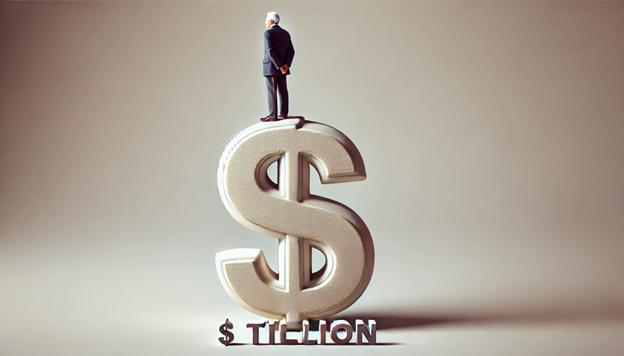Berkshire Hathaway Inc. (BRK.A) has achieved a monumental milestone by surpassing a $1 trillion market valuation, just in time for Warren Buffett’s 94th birthday. This achievement not only places Berkshire Hathaway among the world’s most valuable companies but also underscores the remarkable success of its long-standing strategy under the stewardship of Buffett, one of the most revered figures in the investment world.
The Magnificent Eight: Berkshire Hathaway’s Exclusive Entry
Traditionally, the club of trillion-dollar companies has been dominated by technology giants, often referred to as the “Magnificent Seven.” These include Apple, Microsoft, Alphabet (Google), Amazon, Meta (Facebook), Tesla, and Nvidia. With Berkshire Hathaway now breaching the $1 trillion threshold, it raises the question: Should it now be called the “Magnificent Eight”?
Unlike its peers in the trillion-dollar club, which owe much of their valuations to innovations in technology, Berkshire Hathaway stands out as a diversified conglomerate. The company has its roots deeply entrenched in various industries, ranging from insurance and railroads to energy and retail. This diversification strategy has been a cornerstone of its resilience and consistent performance, even in challenging economic climates.
Warren Buffett’s Vision and Leadership
Warren Buffett’s journey with Berkshire Hathaway began in the 1960s when he took control of what was then a struggling textile company. Through his exceptional investment acumen and strategic foresight, Buffett transformed Berkshire Hathaway into a sprawling conglomerate with over 80 subsidiary businesses. His approach to investment, often described as value investing, focuses on acquiring companies with strong fundamentals at reasonable prices, and holding them for the long term.
One of the most remarkable aspects of Berkshire Hathaway’s stock, particularly its Class A shares (BRK.A), is its price. At nearly $700,000 per share, it is the most expensive stock in the world. This astronomical price is a direct result of Buffett’s decision never to split the stock—a common practice that typically makes shares more accessible to retail investors. Buffett’s rationale for this decision was to maintain a shareholder base of long-term investors who align with his vision and philosophy.

Berkshire Hathaway’s Impressive Cash Reserves
A significant factor contributing to Berkshire Hathaway’s strong market position is its enormous cash reserves. As of the latest reports, the company holds an astonishing $277 billion in cash. Out of this, $234 billion is invested in short-term U.S. Treasury bills (T-bills), surpassing even the Federal Reserve’s holdings of $195 billion in T-bills. This substantial cash hoard gives Berkshire Hathaway unparalleled flexibility in navigating economic uncertainties and seizing investment opportunities.
Buffett has often been criticized for holding such a large amount of cash instead of deploying it in more aggressive investments. However, this strategy has proven prudent, especially in times of market volatility. The cash reserves not only provide a buffer during downturns but also position Berkshire Hathaway to make significant acquisitions or investments when attractive opportunities arise.
The Road Ahead for Berkshire Hathaway
As Berkshire Hathaway crosses the $1 trillion mark, the focus naturally shifts to the future. Warren Buffett, who turns 94, has yet to indicate any plans of slowing down. However, the question of succession looms large. Buffett has built a team of capable executives, including Vice Chairman Charlie Munger, and his likely successors Greg Abel and Ajit Jain, who have been gradually taking on more responsibilities.
The future of Berkshire Hathaway will likely continue to reflect Buffett’s conservative and disciplined approach, even after his tenure. The conglomerate’s emphasis on diversification, strong cash reserves, and value-driven investments will remain its pillars. Furthermore, its entry into the $1 trillion club cements its status as not just a leader in traditional industries but also as a unique player in the broader market landscape.
Conclusion: A Legacy of Unprecedented Success
Berkshire Hathaway’s milestone of reaching a $1 trillion valuation is a testament to Warren Buffett’s extraordinary vision and leadership. As he approaches his 94th birthday, this achievement serves as an early celebration of his enduring legacy in the world of finance and investment. While the future will bring its challenges, Berkshire Hathaway’s foundation appears rock-solid, promising continued growth and stability in the years to come.












